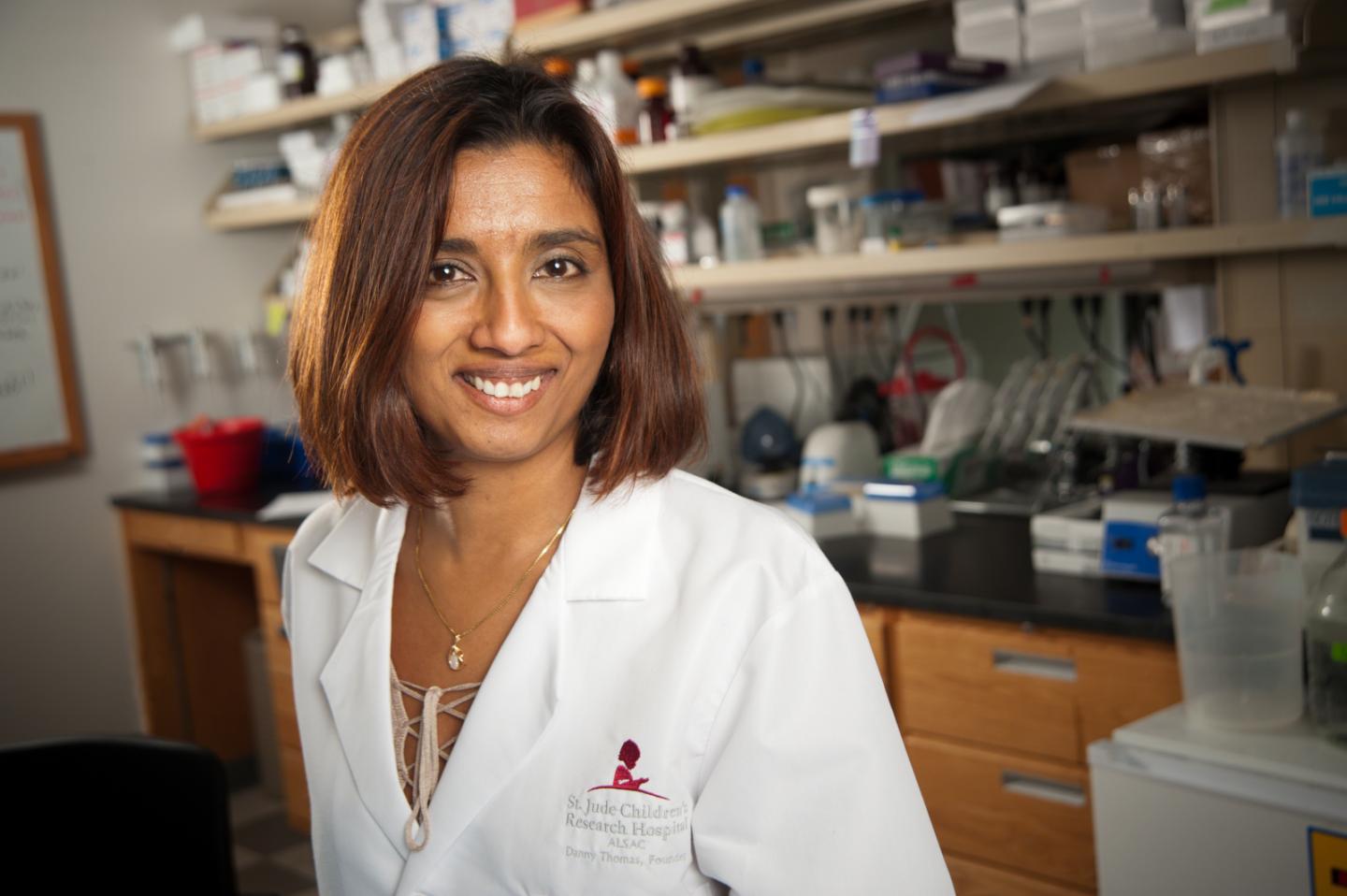
Credit: St. Jude Children’s Research Hospital
St. Jude Children’s Research Hospital scientists have found that the enzymes ULK1 and ULK2 play a key role in breaking down cell structures called stress granules, whose persistence leads to toxic buildup of proteins that kill muscle and brain cells. Such buildup is central to the pathology of three related diseases: inclusion body myopathy (IBM), amyotrophic lateral sclerosis (ALS) and frontotemporal dementia (FTD).
IBM causes weakness in arm and leg muscles. ALS, also known as Lou Gehrig’s disease, causes paralysis due to the death of nerve cells controlling voluntary muscles. FTD is a form of dementia that damages areas of the brain associated with personality, behavior and language.
Led by St. Jude researcher Mondira Kundu, M.D., Ph.D., an associate member of the St. Jude Department of Pathology, the team published their findings online in the journal Molecular Cell.
Stress granules are biological “storm shelters” that temporarily protect genetic molecules and proteins when the cell’s health is under threat from heat, chemicals or infection. Such granules normally disassemble when the stress is removed, but mutations that cause malfunction in the disassembly machinery can cause them to persist. One such mutation is in a gene called VCP, and the St. Jude researchers found that ULK1/2 is a key activator of VCP. Thus, they believe that drugs to boost those enzymes could help treat the pathology of IBM, ALS and FTD.
The other St. Jude authors are Bo Wang, Brian Maxwell, Joung Hyuck Joo, Youngdae Gwon, James Messing, Ashutosh Mishra, Timothy Shaw, Amber Ward, Honghu Quan, Sadie Miki Sakurada, Shondra Pruett-Miller, Peter Vogel, Hong Joo Kim and Junmin Peng. Co-author Tulio Bertorini is with the University of Tennessee Heath Science Center. Co-author J. Paul Taylor is a Howard Hughes Medical Institute Investigator and chair of the St. Jude Department of Cell and Molecular Biology.
The research was supported by the National Institutes of Health (R01 MH115058, HL114697, R01 GM114260, R35 NS097974), the Robert Packard Center for ALS Research and ALSAC, the fundraising and awareness organization of St. Jude.
###
Media Contact
Corey Carmichael
[email protected]
Original Source
http://www.
Related Journal Article
http://dx.




